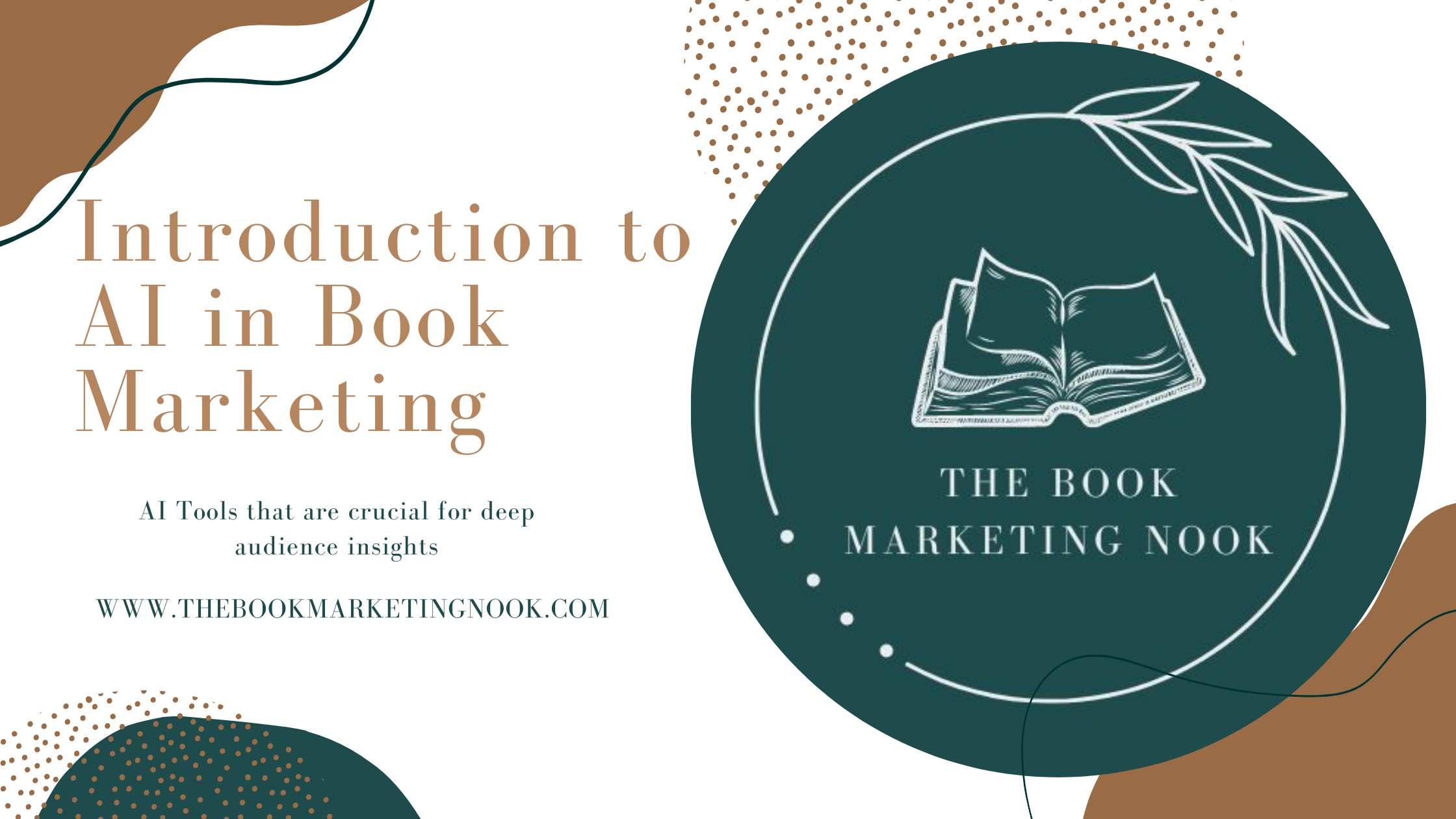I’m nervous about posting today’s blog: An Introduction to AI in Book Marketing. Many authors I’ve worked with find generative AI to mark all human writers’ ends and to be lousy technology. I appreciate the concern, especially because one of my daughters is going to college to become a journalist. College tuition being what it is, the idea of a computer program taking her future livelihood away makes me feel queasy. And while I don’t want to alienate my readers (including my daughter), AI is influential and here to stay. So, with shaky hands I’m going to explore the growing role of AI technology for authors, its alignment with current digital marketing trends and book marketing, and why authors should take notice.
The Emergence of AI in Publishing
Over the years, the publishing industry has been gradually incorporating AI technologies. Publishers now leverage AI to analyze market trends, understand reader preferences, and forecast book sales. AI’s role extends beyond sales analytics into facets of content development, including personalized recommendations, author support tools, and interactive reader experiences.
For published authors who are marketing, understanding their audience is a crucial step to increasing book sales. AI-powered audience insights can transform how authors interact with and understand their readers. By using data, authors can identify reader preferences, trends, and behaviors, enabling the creation of promotional content that truly resonates.

Here’s how to harness AI for deep audience insights:
1. Choose the Right AI Tools
Survey and Feedback Tools: Platforms like SurveyMonkey or Google Forms can help you collect direct feedback from your readers.
Social Media Analytic Tools: Hootsuite or Buffer provides insights into your followers’ preferences and engagement patterns.
AI-Powered Analytics Platforms: Consider platforms like Crayon or MarketMuse, which use AI to analyze market trends and reader interests.
2. Gather Data
Reader Surveys: Conduct surveys to ask your readers about their preferences, pain points, and what they want to see more of.
Social Media Engagement: Analyze likes, comments, shares, and most importantly, the sentiment behind them to understand reader interests.
Web Analytics: Use Google Analytics to see which topics on your website or blog attract the most readers.
3. Analyze the Data
Identify Trends: Look for patterns in the data. What topics are consistently popular? What content types (videos, blogs, infographics) do your readers engage with most?
Segment Your Audience: Not all readers are the same. Identify different segments based on their preferences, demographics, or behavior.
4. Apply Insights to Content Creation
Tailor Your Content: Use the insights gained to create or adjust your content strategy. If readers love a particular topic, consider a series dedicated to it.
Personalize Your Communication: Use audience segments to personalize your newsletters, emails, and social media posts to speak directly to different groups’ interests.
5. Implement Promotional Strategies
Targeted Ads: Use your insights to run targeted ad campaigns on social media platforms, focusing on the interests and behaviors of your audience.
Engagement Campaigns: Launch campaigns that encourage interaction, such as contests or live Q&A sessions, based on topics you know your audience loves.
6. Measure and Adjust
Track Engagement: Monitor how your tailored content and promotional strategies are performing. Are you seeing higher engagement rates? More newsletter sign-ups?
Iterate: Use feedback and performance data to refine your approach continually. Audience preferences can change, and staying adaptable is critical.
Embracing AI in your marketing strategy can be a game-changer. Start experimenting with these tools and techniques today, and watch your author brand thrive in ways you’ve never imagined.
Ready to dig deeper into AI-driven book marketing? Stay tuned as I explore AI tools for content creation, audience analysis, and more in my upcoming blogs. The future of book marketing is bright, and AI powers it.







Share your comments!